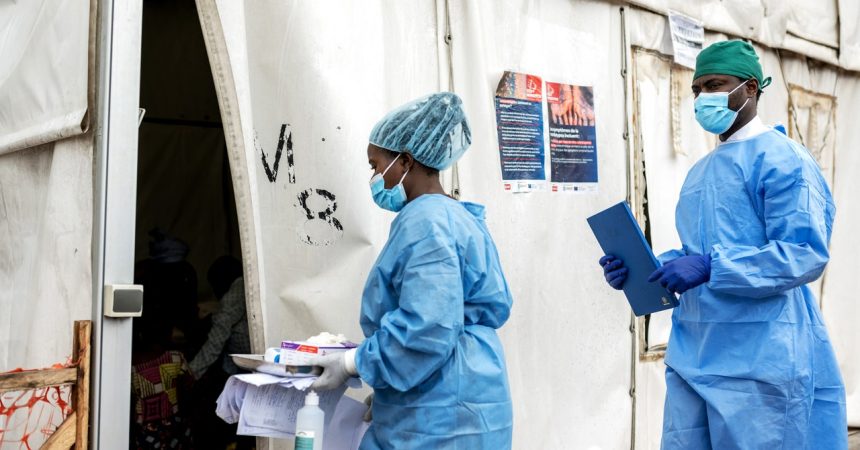The southwestern Democratic Republic of Congo (DRC) is grappling with a burgeoning health crisis, as an unidentified disease continues to claim lives, sparking concern and prompting urgent investigation. With 71 confirmed fatalities, including 27 in hospitals and 44 in communities within Kwango province, the outbreak has escalated rapidly, raising alarm bells among health officials. The World Health Organization (WHO) and the Africa Centers for Disease Control and Prevention (Africa CDC) have mobilized resources, deploying experts to the affected region to collect samples and conduct laboratory tests crucial for identifying the elusive pathogen. Preliminary assessments suggest a respiratory illness, characterized by symptoms like coughing and respiratory distress, but conclusive identification awaits laboratory results expected within the next 24 to 48 hours. The prevailing uncertainty surrounding the disease’s contagiousness, transmission routes, and broader characteristics further complicates the situation, emphasizing the urgency of the ongoing investigations.
Currently, an estimated 380 cases have been identified, with a concerningly high proportion, nearly half, affecting children under five years old. This demographic vulnerability underscores the potential severity of the outbreak and the need for targeted interventions to protect this susceptible population. Reported symptoms include a constellation of flu-like manifestations, such as coughing, vomiting, high fever, and severe headaches, painting a picture of a debilitating illness. As authorities await definitive diagnostic results, precautionary measures have been implemented, urging citizens to exercise caution, particularly in avoiding contact with deceased individuals, to mitigate potential contagion risks. The mounting case numbers and the unknown nature of the pathogen necessitate heightened vigilance and proactive public health measures.
The unfolding health crisis is further exacerbated by the pre-existing fragility of the healthcare system in the affected region. Kwango province, like many areas in the DRC, faces significant challenges in healthcare access and resource availability. A staggering 40% of residents suffer from malnutrition, weakening their immune systems and increasing their vulnerability to infectious diseases. Limited access to medical care and persistent shortages of essential medicines compound these challenges, creating a precarious healthcare landscape. The emergence of this new outbreak amidst these existing vulnerabilities underscores the urgent need for comprehensive and coordinated intervention strategies to address both the immediate crisis and the underlying systemic weaknesses.
Coincidentally, the DRC is simultaneously battling an ongoing mpox epidemic, a public health emergency of international concern declared by the WHO in August. This concurrent outbreak stretches already strained healthcare resources and infrastructure, demanding a multi-pronged response to address both emergencies effectively. The confluence of these health crises underscores the complex challenges faced by the DRC and the critical need for international collaboration and support to bolster the country’s capacity to respond effectively.
The WHO and Africa CDC are working closely with local health authorities to implement surveillance measures, enhance diagnostic capabilities, and develop appropriate treatment protocols. Rapid identification of the pathogen is paramount for guiding effective interventions, including potential development and deployment of targeted therapies or vaccines. Furthermore, community engagement and health education campaigns are crucial for raising awareness about the disease, promoting preventive measures, and addressing misinformation that can hinder effective response efforts.
The unfolding situation in the DRC highlights the interconnectedness of global health security and the importance of robust surveillance systems, rapid diagnostic capabilities, and coordinated international responses to emerging health threats. The investigation into this unidentified disease will not only provide critical information for managing the current outbreak but also contribute valuable insights for strengthening global pandemic preparedness and response capacities. The international community must rally behind the DRC, providing the necessary resources and support to combat this emerging health crisis and prevent its wider spread, mitigating further suffering and protecting vulnerable populations. The confluence of this unidentified illness with the ongoing mpox epidemic underscores the fragility of healthcare systems in resource-constrained settings and the urgent need for sustainable investments in strengthening health infrastructure and pandemic preparedness globally.



